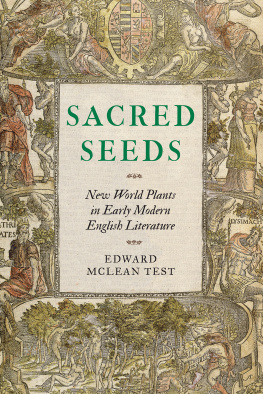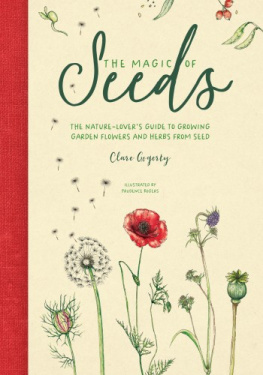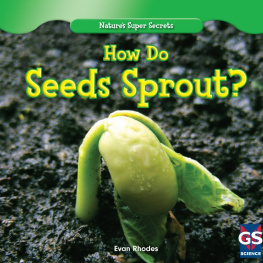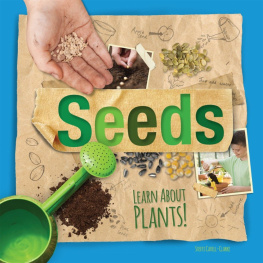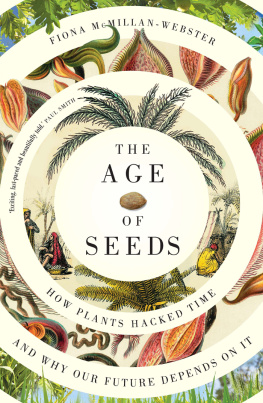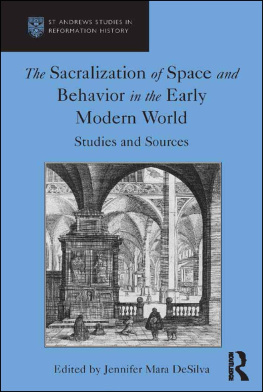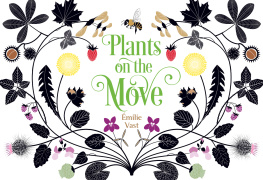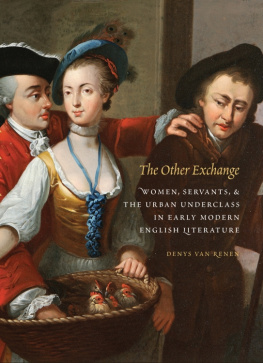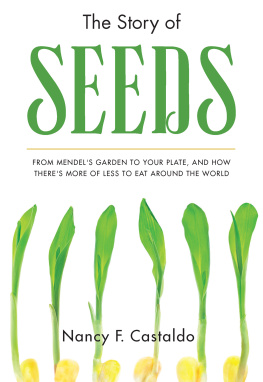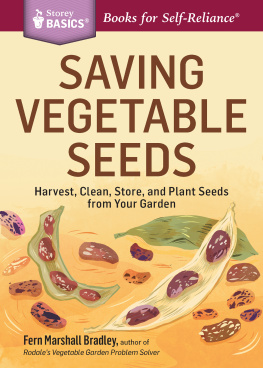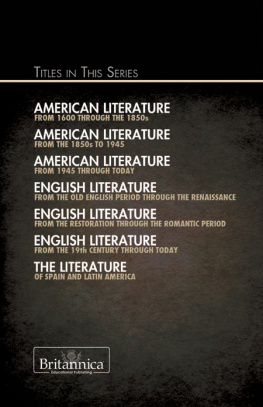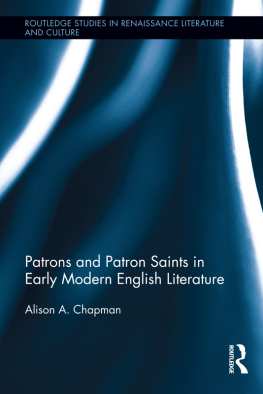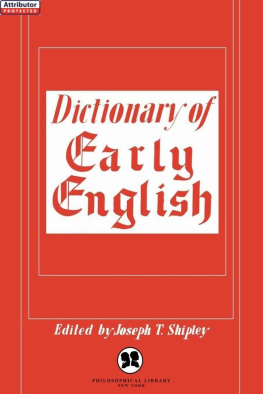Test - Sacred seeds: new world plants in early modern English literature
Here you can read online Test - Sacred seeds: new world plants in early modern English literature full text of the book (entire story) in english for free. Download pdf and epub, get meaning, cover and reviews about this ebook. City: America;Amérique;Europe, year: 2019, publisher: University of Nebraska Press, genre: History. Description of the work, (preface) as well as reviews are available. Best literature library LitArk.com created for fans of good reading and offers a wide selection of genres:
Romance novel
Science fiction
Adventure
Detective
Science
History
Home and family
Prose
Art
Politics
Computer
Non-fiction
Religion
Business
Children
Humor
Choose a favorite category and find really read worthwhile books. Enjoy immersion in the world of imagination, feel the emotions of the characters or learn something new for yourself, make an fascinating discovery.
- Book:Sacred seeds: new world plants in early modern English literature
- Author:
- Publisher:University of Nebraska Press
- Genre:
- Year:2019
- City:America;Amérique;Europe
- Rating:5 / 5
- Favourites:Add to favourites
- Your mark:
- 100
- 1
- 2
- 3
- 4
- 5
Sacred seeds: new world plants in early modern English literature: summary, description and annotation
We offer to read an annotation, description, summary or preface (depends on what the author of the book "Sacred seeds: new world plants in early modern English literature" wrote himself). If you haven't found the necessary information about the book — write in the comments, we will try to find it.
Test: author's other books
Who wrote Sacred seeds: new world plants in early modern English literature? Find out the surname, the name of the author of the book and a list of all author's works by series.
Sacred seeds: new world plants in early modern English literature — read online for free the complete book (whole text) full work
Below is the text of the book, divided by pages. System saving the place of the last page read, allows you to conveniently read the book "Sacred seeds: new world plants in early modern English literature" online for free, without having to search again every time where you left off. Put a bookmark, and you can go to the page where you finished reading at any time.
Font size:
Interval:
Bookmark:
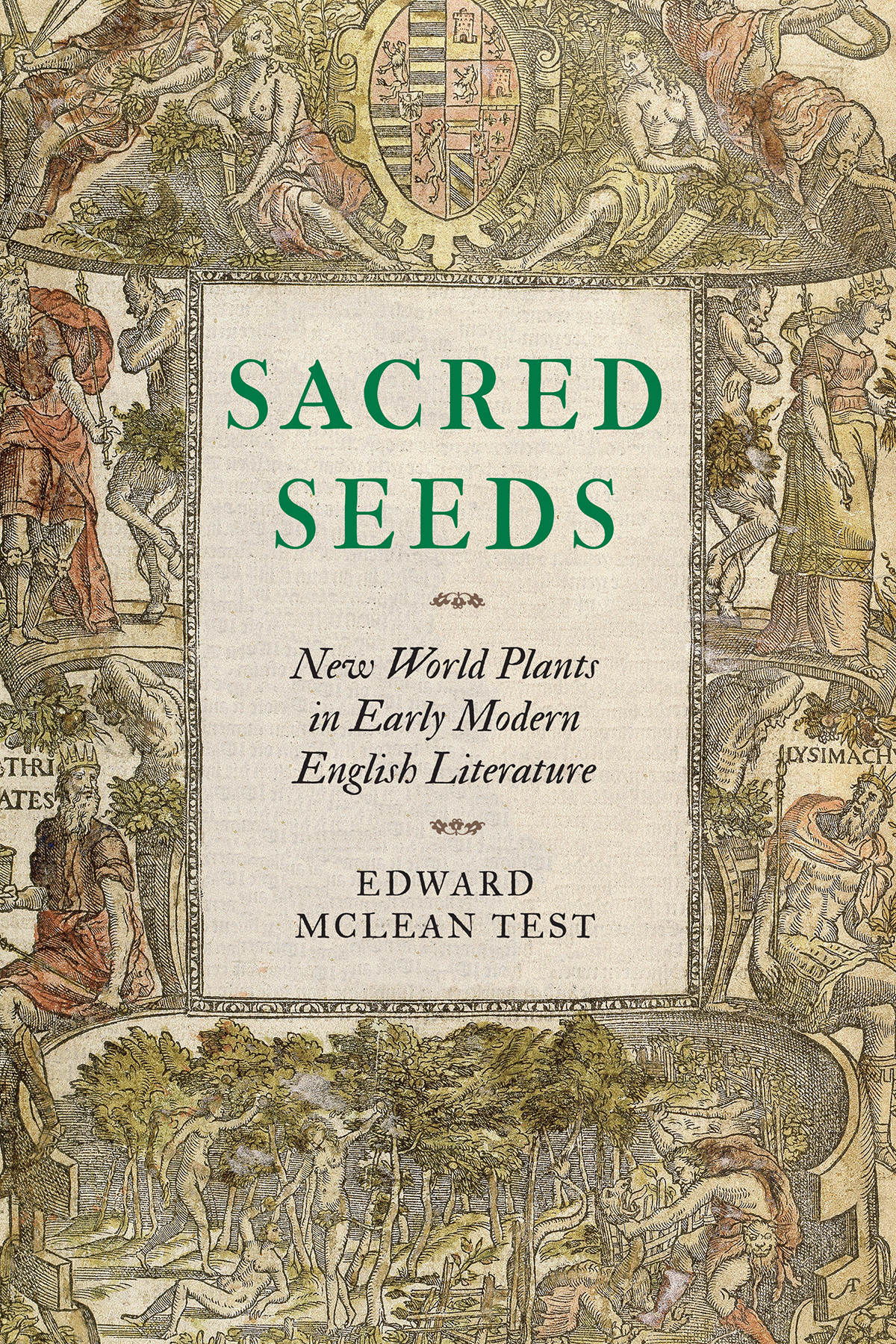
Edward McLean Test shows how Eurocentrism has impoverished our understanding of the early modern world.... Test insists on the contributions of indigenous peoples to European society, showing how their ideas and stories, as well as their plants, changed Europe. He also reveals the power of literature as an agent of historical change.
Frances E. Dolan, Distinguished Professor of English at the University of California, Davis
We need a global early modern studies, and this book will help us make one. Tests wide-ranging and erudite study enriches the environmental humanities through its deep familiarity with English, Spanish, and Native American texts and contexts, as well as his shrewd engagement with the theoretical insights of contemporary ecocriticism.... Tests book will take its place as one of the significant works in creating the fully global, multilingual, and multiethnic understanding of early modernity that we need today.
Steve Mentz, professor of English at St. Johns University in New York City
Early Modern Cultural Studies
Series Editors
Carole Levin
Marguerite A. Tassi
Edward McLean Test
University of Nebraska Press | Lincoln and London
2019 by the Board of Regents of the University of Nebraska
Portions of chapter 5 originally appeared as Seeds of Sacrifice: Amaranth, the Gardens of Tenochtitlan and Spensers Faerie Queene in A Companion to the Global Renaissance, 15501660, ed. Jyotsna Singh (Wiley-Blackwell, 2009), 24261; and as A dish fit for the gods: Mexica Sacrifice in De Bry, Las Casas, and Shakespeares Julius Caesar in The Journal of Medieval and Early Modern Studies 41, no. 1 (2011): 93115.
Cover designed by University of Nebraska Press; cover image courtesy of the U-M Library Digital Collections, Netherlandic Treasures Images, Special Collections Library, University of Michigan.
All rights reserved
Library of Congress Cataloging-in-Publication Data
Names: Test, Edward McLean, author.
Title: Sacred seeds: new world plants in early modern English literature / Edward McLean Test.
Other titles: New world plants in early modern English literature
Description: Lincoln: University of Nebraska Press, 2019. | Series: Early modern cultural studies | Includes bibliographical references and index.
Identifiers: LCCN 2018023683
ISBN 9781496207883 (hardback)
ISBN 9781496212894 (epub)
ISBN 9781496212900 (mobi)
ISBN 9781496212917 (pdf)
Subjects: LCSH : English literatureEarly modern, 15001700History and criticism. | Gardens in literature. | Plants in literature. | America in literature. | Indigenous peoplesAmericaInfluence. | NatureReligious aspects. | EuropeCivilizationAmerican influences. | BISAC : LITERARY CRITICISM / Renaissance. | LITERARY CRITICISM / European / English, Irish, Scottish, Welsh.
Classification: LCC PR 428. G 37 T 47 2019 | DDC 820.9/364dc23 LC record available at https://lccn.loc.gov/2018023683
The publisher does not have any control over and does not assume any responsibility for author or third-party websites or their content.
For Karen, who saw the garden bloom
Every image of the past that is not recognized by the present as one of its own concerns threatens to disappear irretrievably.
Walter Benjamin
The seeds of this book were sown during a trip I took to Mexico in 1990. The country, its people, and its rich cultural heritage grabbed hold of my imaginationso much so that I moved to Mexico (supporting myself by fishing the Bering Sea). I immersed myself in Mexican literature and history, reading books in both English and Spanish, visiting ruins, meeting scholars and writers, participating in temazcal rituals, consulting brujas. All of this knowledge and experience percolated for a decade until my first graduate class on Edmund Spensers Faerie Queeneinstead of English knights fighting dragons, the text conjured up images of conquistadores fighting Quetzalcoatl (the feathered serpent of Mexican lore). At first, I thought myself a bit crazy. Why would an English writer of 1590 write about the New World before the English founded their first colony? Then I discovered the scholarship of New Historicism and realized I was not so crazy after all.
I want to thank all the friends and acquaintances in Mexico who provided the fertile ground for planting the seeds of this book. I am especially indebted to Richard Helgerson, whose voice, when I first presented my idea for a dissertation based on a single Mexican plant (amaranth), I can still hear today: You dont want a thread, he instructed me. You want a cable. Thank you, Patricia Fumerton, for your endlessand continuingguidance, friendship, and advice from graduate school to tenure and beyond. UC Santa Barbara, the Early Modern Center, and all my cohort of graduate students provided an amazingly supportive and intellectually challenging environment, burgeoning with new ideas.
The following grants and fellowships provided time and funds to conduct research for this book: the Dibner Fellowship for History of Science and Technology, Huntington Library, San Marino, California (2015); the Boise State University College of Arts and Sciences Arts and Humanities Institute Research Grant (2015, 2011); the Folger Shakespeare Library Fellowship (2013); the Idaho Humanities Council Research and National Endowment for Humanities Grant (2012); the John Carter Brown Library Research Fellow (2009); and the Making Publics Research Grant (2008).
The greatest event since the creation of the world was the discovery of the Americas, writes Francisco Lpez de Gmara, the secretary to conquistador Hernn Corts, in his 1552 dedication to La historia general de las indias. More than four hundred years later, present-day writers still use the justifiably hyperbolic adjectives to describe this world-changing event. Historian Tzvetan Todorov calls the discovery of America the most astonishing encounter of our history. There is no shortage of descriptive terms, and like all historical events of great import, Columbuss crossing of the Atlantic and the age of exploration that ensued dramatically changed the early modern world. The societies, economies, cultures, arts, and burgeoning sciences of Europe were quickly transformed by this remarkable encounter with the New World. To place this event in a modern-day perspective, imagine we were to voyage to Mars and encounter a race of aliens whom we could easily conquer, whose strange customs both horrified and awed us, and whose mode of living recalled our own pagan past. Imagine their planet was full of natural resources ready for the taking. Undoubtedly, intrepid space voyagers would assay the newfound world and exploit its natural resources to fortify old markets and develop new ones; likewise, poets and playwrights would forge a literature that reflected what English author Ben Jonson might have labeled News from the New World Discovered on Mars, reveling in fantastical new metaphors derived from what many would consider the greatest event in human history.
European explorers sallied forth across the Atlantic on quests to see and possess the Eden lands while writers at home celebrated their encounters: Earths only paradise! the poet Michael Drayton writes in 1606, To whose the golden age / Still natures laws doth give. Equating the Americas with Ovids version of Paradise undoubtedly lingered in George Sandyss mind when he translated the Metamorphoses
Next pageFont size:
Interval:
Bookmark:
Similar books «Sacred seeds: new world plants in early modern English literature»
Look at similar books to Sacred seeds: new world plants in early modern English literature. We have selected literature similar in name and meaning in the hope of providing readers with more options to find new, interesting, not yet read works.
Discussion, reviews of the book Sacred seeds: new world plants in early modern English literature and just readers' own opinions. Leave your comments, write what you think about the work, its meaning or the main characters. Specify what exactly you liked and what you didn't like, and why you think so.

